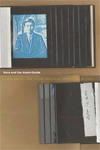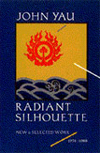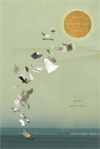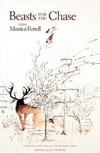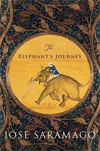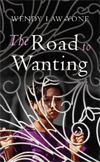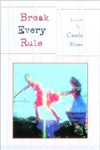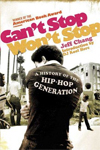Last year, we asked our staff writers to recommend books that they’d read in the last year and thought were worth passing on. This year, we’ve decided to continue with this tradition. In light of that, here are our holiday staff picks for 2010 (poetry, prose and more—yes, we read more than poetry!)
* * *
Recommended by Mia: “This is one of the key critical texts on my reading list for the holidays. I’ve only skimmed the first few chapters, but thus far have found Yu’s argument compelling, his analysis rigorous, and his wide-ranging knowledge of Asian American and Language poetry in the United States to be informative to my own work—not to mention useful in historicizing these two movements/moments in contemporary poetry!
From the Tinfish Editors’ Blog: ‘Using a definition of the avant-garde that has less to do with aesthetics than with social groups composed of like-minded artists, Yu argues that Asian American poetry and Language writing formed parallel movements in the 1970s. […] Both presented themselves in opposition to the mainstream; both were marked by questions of form and racial identity. Both meant to create art out of social groups, and reconstitute the social through the reception of their art.'”
* * *
Radiant Silhouette: New & Selected Work 1974-1988 | John Yau | Black Sparrow Press (1989)
Recommended by Mia: “Yau is one of the two major poets that Timothy Yu addresses in Race and the Avant-Garde (Theresa Hak Kyung Cha is the other), so I’ve been reading through his New & Selected Work for an introduction to the thematic and aesthetic scope of his early career. He’s a fascinating figure in Asian American poetry and, as Yu points out, ‘might best be read as a restoration of the links between politics, form, and race that characterize the avant-garde Asian American poetry of the 1970s [… providing] the first opportunity for most readers to recognize […] the presence of that avant-garde back into the very origins of Asian American writing.'”
* * *
Man on Extremely Small Island | Jason Koo | C&R Press (2009)
Recommended by Iris: “Jason Koo’s style is very different from my own, but this book (his first collection) managed to completely charm me with its quirkiness. The voice of the book’s primary speaker manifests a world-weary exhaustion that is, on the surface, darkly melancholic and painfully self-deprecating. He obsesses over his dirty apartment while eating a tuna sandwich, dreams about floundering clumsily through an encounter with Lucy Liu, envisions himself stranded on an island in the middle of an ocean, worrying about the size of his nose. But beneath the speaker’s (at times endearingly hyperbolic) self-consciousness lies a striking vulnerability and a luminous ability to evoke the fantastic within the mundane: BBQ chip crumbs echo the ‘fine grains / of my slovenliness,’ becoming ‘barbecue pollen,’ and later, ‘orange microbes’ (9); Lucy Liu becomes a motherly goddess figure who guides him through a secret mission, ‘pulling you after her diving into the stage,’ which becomes the arena for an undersea showdown complete with battleships, lingerie models, and harpoons (22) , the island transforms into the kneecap of a giant woman who ‘has no nose. Just a space where mine / can fit’ (77). Part Frank O’Hara, part tragic hero of his own sardonic comic-book series, the speaker’s sense of humor, whimsy, and wonder, as transmitted by Koo’s craft, paint a picture of a world that reinvisions the now-archetypal image behind John Donne’s famous ‘No man is an island’ with simultaneous irreverence and tenderness. ”
* * *
Beasts for the Chase | Monica Ferrell | Sarabande Books (2008)
Recommended by Iris: “Possibly one of the most beautiful collections that I have read this year. Along with the beautifully strange and grotesque figurations of the body that occur in Kimiko Hahn’s The Artist’s Daughter, Ferrell’s gorgeously ornate (but never stiff) renderings of mythological and literary figures have caused me to look more closely at my own craft, to think more minutely and intensely about the intricacies of shape, texture, and fluid—the body as shapeshifting tableau, rendered intricately and forcefully (even animalistically, at times) on the page.”
* * *
Recommended by Monica: “This is the first Saramago book I’ve read and I hope you, like me, find and read everything you can by him. The Elephant’s Journey is apparently a work of historical fiction but it also lives in the interstices of other genres such as fable, socio-political commentary, philosophy, and gentle comedy. An Indian elephant, gifted to the king of Portugal by Goa, is re-gifted to the archduke of Austria. How he makes his journey across 16th c. Europe with his mahout is basically the plot, and there’s not much to it. It is Saramago’s narrative strategies, such as the artifice of orality, defocalization, polyvocality, and digressions, that give the book its force.”
* * *
The Road to Wanting | Wendy Law-Yone | Chatto & Windus (2010)
Recommended by Simone: “It begins with a suicide and a comedy of errors, wrought with the dark humor leftover in ordinary people’s minds in a former British colony. Although the town of Wanting and the Wild Lu tribe which feed this novel’s plot are the author’s inventions, Burma (her birthplace) and its complex human dramas are very real. The principle character, Na Ga, illuminates the stark reality of what Nobel Laureate, Aung San Suu Kyi once referred to as a ‘Fascist Disneyland.’ Na Ga’s story gives voice to the country’s ethnic minorities and reveals a more intricate portrait of Burma through her own longing, displacement and growth. Throughout her tumultuous journey, Na Ga seeks to discover what–and where–‘home’ truly is.”
* * *
Recommended by Kelsay: “I find Maso’s short collection of essays to be incredibly inspiring for the lyric artist in any genre. In this book, she elevates the act of writing about writing to poetry because she’s not afraid to interrogate the task of a lyricist, especially a lyrical writer of prose, while making love to language itself in each essay.”
* * *
Can’t Stop Won’t Stop: A History of the Hip-Hop Generation | Jeff Chang | Picador (2005)
Recommended by Kelsay: “When asked what basic idea he wanted readers to walk away with this past November in a lecture on Can’t Stop Won’t Stop at Saint Mary’s College of California, Jeff Chang said: ‘That hip-hop is a worldview.’ Even more than a history of the music that made his generation, his book is a story of generations, political ideologies, history, culture and the worldview of the people participating in the grassroots movement over the past thirty years. ”
* * *
And don’t forget the following books—all of which we’ve reviewed and/or featured in the last year—either:
Poetry
- Water the Moon by Fiona Sze-Lorrain (reviewed in this post by Supriya Misra)
- Insides She Swallowed by Sasha Pimental Chacón (reviewed in this post by Supriya Misra)
- from unincorporated territory [hacha] and from unincorporated territory [saina] by Craig Santos Perez (as featured in this interview with him)
- Why is the Edge Always Windy? by M0ng-Lan (as featured in this guest post by Stephen H. Sohn and this interview with her)
- In the Mynah Bird’s Own Words by Barbara Tran (as featured in this guest post about Tupelo, by Stephen H. Sohn)
- Ardor by Karen An-hwei Lee (as featured in this guest post about Tupelo, by Stephen H. Sohn)
- At the Drive-In Volcano and Miracle Fruit by Aimee Nezhukumatathil (as featured in this guest post about Tupelo, by Stephen H. Sohn)
- Ignatz by Monica Youn (reviewed in this post by Supriya Misra)
- Requiem for the Orchard by Oliver de la Paz (reviewed in this post by Supriya Misra)
- Indivisible: An Anthology of Contemporary South Asian American Poetry (featured over the course of two months: part 1 and part 2)
- Each Crumbling House by Melody Gee (reviewed in this post by Henry W. Leung)
- The Half-Inch Himalayas by Agha Shahid Ali (as featured in this post by Mrigaa Sethi)
- 100 Poems by S S Prasad (reviewed in this post by Monica Mody)
- Adamantine by Shin Yu Pai (reviewed in this guest post by Stephen H. Sohn)
- The Mental Life of Cities by Eddie Tay (reviewed in this post by Henry W. Leung)
- Diwata by Barbara Jane Reyes (reviewed in this post by Monica Mody)
- Burnings by Ocean Vuong (reviewed in this post by Kevin Minh Allen)
Prose
- I Love You’s Are For White People by Lac Su (reviewed in this post by Ly Chheng)
- I-Hotel by Karen Tei Yamashita (reviewed in this post by Ly Chheng
* * *
Please help support the work of small presses and Asian American writers this season. What’s on your holiday reading or gift list this year? Leave us a note in the comments to share your favorite titles from 2010.
